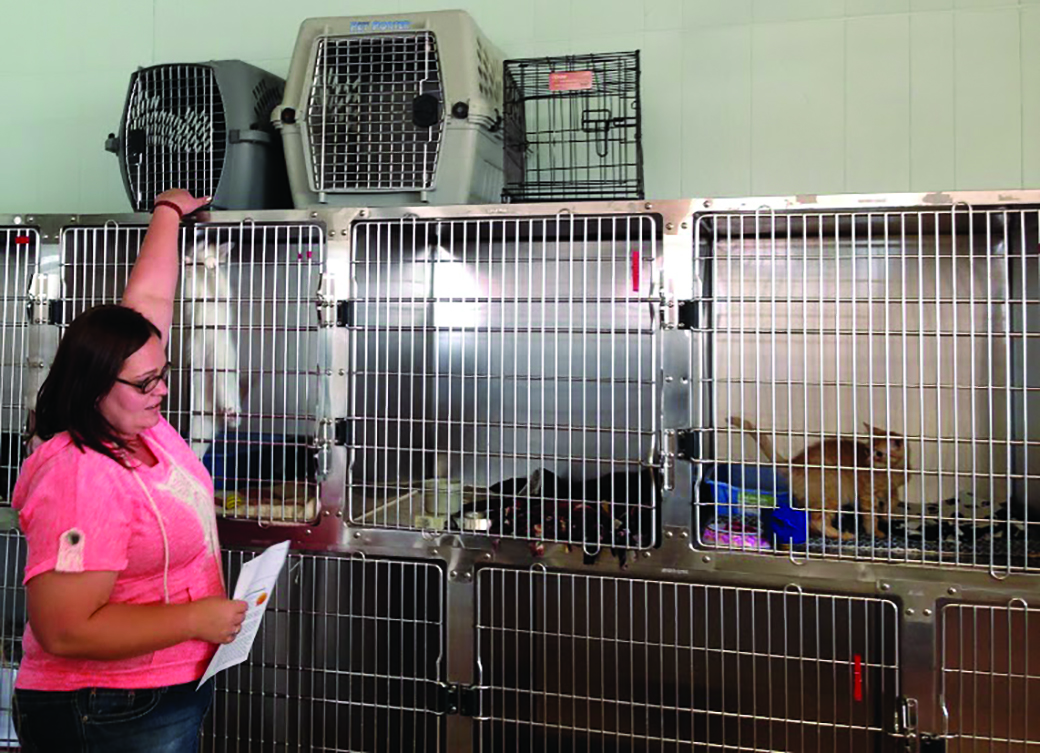
Graduate students evaluate animal shelter for student design competition
The word “ergonomical” is seen by many as a buzzword used to describe and advertise office furnishings and devices.
But for those entering the 2015 Auburn Engineers Student Design Competition, including two USD teams of mostly graduate students, ergonomics is the study of the way in which humans do work and how to improve upon it.
Sam White, a human factors psychology graduate student, said that ergonomics “basically involves designing things to work best with human operators.” This can range from workplace chairs, computer screens and keyboards, to exercise equipment, cellphones and staircases.
The two USD groups – which include White and faculty adviser Jan Berkhout, the head of the human factors department – were assigned to tour, evaluate and offer recommendations to an animal shelter.
They chose the Heartland Humane Society in Yankton, which they toured Oct. 16.
One team calls themselves “Applied Analytics” and consists of graduate students White, Andrew Beck, Eric Roberts, Ellie Maubach and Kristyne Bruggeman.
The other team named itself “Urban Iguana Council,” which was selected from a random-word generator, and consists of graduate students Ramon Dominguez, Alix Galinsky, Jon Vogl, Logan Hale and first-year Axel Galinsky.
Dominguez, a Urban Iguana Council member, said the teams have to submit their recommendations to the animal shelter by Oct. 27, which will then be evaluated by a panel at Auburn.
White said it was interesting to evaluate the working conditions of people in a setting which is normally concerned exclusively with the welfare of animals.
The groups used what they’ve learned in their courses to evaluate potential issues with the workplace, like areas that may be hazardous or carry a higher likelihood of worker overexertion.
The group met with Kerry Hacecky, the Heartland Humane Society director, who gave them a tour, including a run-through of the daily activities and responsibilities of a shelter employee throughout the facility, White said.
There were a few issues of note at the animal shelter, Domininguez said, including a shelf organization system with heavier objects aloft that could be a potential hazard.
The results of the Auburn Engineers Student Design Competition will be announced in December.
The competition, which has been facilitated by Auburn University of Alabama since 2006, offers cash prizes to students who are best able to “solve” various workplace problems assigned to them, White said.
Teams from USD entered the contest in 2007 and won the alternate “ergoPrize,” which Berkhout said is equivalent to second place. USD teams earned honorable mentions at the competition in 2013 and 2014.
This year, Berkhout said roughly 35 teams from across the country will be competing in the contest.

